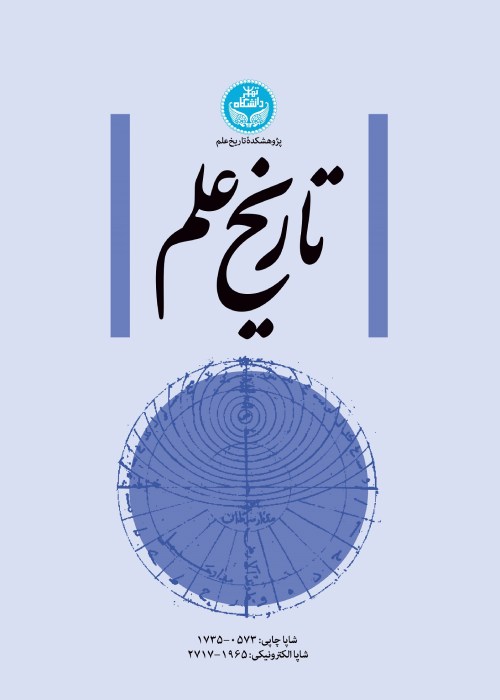Problem of Simplicity of Muḥaddid al-Jihāt Sphere and Qūshchī's Challenge in it
Author(s):
Article Type:
Research/Original Article (دارای رتبه معتبر)
Abstract:
The concept of sphere and its use for the description of the motions of heavenly bodies goes back to the ancient Greece. It was developed by the works of philosophers such as Plato and Aristotle and astronomers and mathematicians such as Euxoxus and Ptolemy. Philosophers and astronomers of the Islamic period extended this concpt and developed new philosophical concepts on its basis. They increased the number of the spheres from eight to nine, adding a last sphere called muḥaddid al-jihāt (the spheres which limits the directions). The idea of the simplicity of this sphere was emphasized by Ibn Sīnā and his followers, and this idea served as a basis for some philosophical-theological positions. In his commentary on Tajrīd al-ʿItiqād of Naṣir al-Dīn Ṭūsī, ʿAlī Qūshchī put into question this thesis. In this paper, we explain the concept of muḥaddid al-jihāt and we will discuss some of Qūshchīs critiques.
Keywords:
Language:
Persian
Published:
History of Science, Volume:13 Issue: 1, 2015
Pages:
133 to 145
magiran.com/p1836235
دانلود و مطالعه متن این مقاله با یکی از روشهای زیر امکان پذیر است:
اشتراک شخصی
با عضویت و پرداخت آنلاین حق اشتراک یکساله به مبلغ 1,390,000ريال میتوانید 70 عنوان مطلب دانلود کنید!
اشتراک سازمانی
به کتابخانه دانشگاه یا محل کار خود پیشنهاد کنید تا اشتراک سازمانی این پایگاه را برای دسترسی نامحدود همه کاربران به متن مطالب تهیه نمایند!
توجه!
- حق عضویت دریافتی صرف حمایت از نشریات عضو و نگهداری، تکمیل و توسعه مگیران میشود.
- پرداخت حق اشتراک و دانلود مقالات اجازه بازنشر آن در سایر رسانههای چاپی و دیجیتال را به کاربر نمیدهد.
دسترسی سراسری کاربران دانشگاه پیام نور!
اعضای هیئت علمی و دانشجویان دانشگاه پیام نور در سراسر کشور، در صورت ثبت نام با ایمیل دانشگاهی، تا پایان فروردین ماه 1403 به مقالات سایت دسترسی خواهند داشت!
In order to view content subscription is required
Personal subscription
Subscribe magiran.com for 70 € euros via PayPal and download 70 articles during a year.
Organization subscription
Please contact us to subscribe your university or library for unlimited access!



